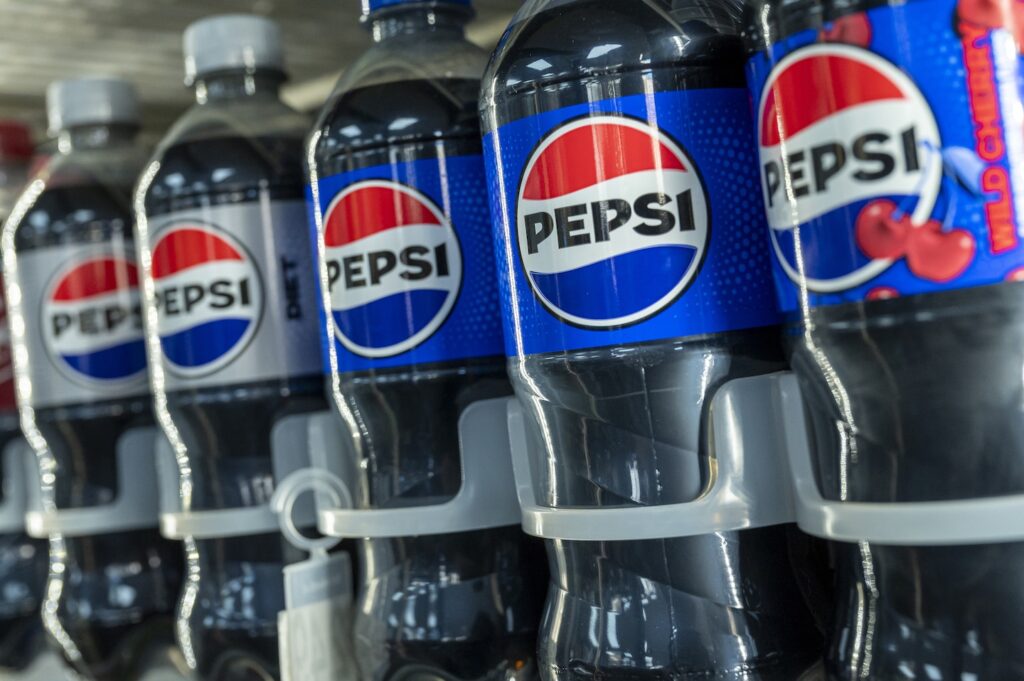Food inflation is slowing, and companies that produce food are starting to feel the strain.
Snack-food giants PepsiCo Inc. and Conagra Brands Inc. reported declines in sales and unit sales in their quarterly earnings reports on Thursday, noting that cost-conscious consumers are pushing back against prices. Government data mirrored the trend, with the Bureau of Labor Statistics reporting that food prices rose slightly last month.
“Consumers have become very price sensitive,” said Bobby Gibbs, partner in the retail and consumer goods practice at marketing consulting firm Oliver Wyman. “Consumers are becoming more selective about promotional pricing, and retailers are offering more promotional pricing than in past years.”
Though the economy is technically strong, the prices of many goods remain higher than they were before the pandemic and household debt is rising: Food prices have risen 18% since 2020, but the latest inflation report released Thursday showed prices leveling off.
The total cost of “food at home” rose just 0.1% in June from the previous month. Prices of some major budget items were already falling, with fruit and vegetables down 0.5% and cereals and bakery products down 0.1%.
Get caught up in
Stories to keep you up to date
PepsiCo and Conagra’s results suggest that consumers frustrated by rising prices are cutting back on spending on existing brands, especially in the snack and soda aisles.
PepsiCo, which makes not only its namesake soda but also other beverages, Frito-Lay snacks and Quaker cereal, raised prices 5% in the second quarter, which led to lower unit sales. North American volume fell 4% at Frito-Lay, one of the company’s main snack businesses, and 3.5% at PepsiCo Beverages.
Some retailers are already responding: Target, Aldi, Amazon, and Walmart announced in May that they would be cutting prices on many grocery items.
PepsiCo Chief Executive Officer Ramon Laguarta acknowledged on a conference call with analysts on Thursday that customers are hungry for a better deal.
“For certain consumers, we need a new introductory price point and maybe some new promotional methods that don’t expect consumers to spend a lot of cash on salty snacks,” he said. “So an adjustment is needed. … After three or four years of significant inflation, there is some value to give back to consumers.”
PepsiCo said it will try a “broader mix” of products, including snack variety packs and a range of price points, and plans to focus on healthy brands that continue to sell well, such as Pop Corners, Smartfood and Bear, and to bolster its international snack lines, including Mexican brands Sabritas and Gamesa.
Also on Thursday, Conagra reported a 2.3% drop in sales and a 1.8% drop in volume for the nearly completed quarter. The company said the sales downturn was due to “continued weak consumption,” and that its brands include Slim Jim, Banquet, Vlasic, Swiss Miss and Duncan Hines.
Food companies have seen “value-seeking behavior” among lower- and higher-income customers alike over the past year, ConAgra Chief Executive Sean Connolly told analysts on Thursday.
“Part of it is based on reality – people had to make ends meet – and part of it is based on principle,” Connolly said. “Even higher-income customers, on principle, don’t like the prices they’re seeing in their basket and will buy less.”
Connolly said he expects those pressures to ease over the course of the year as consumers become more accustomed to higher prices. For example, sales of the company’s snack and frozen food products are now roughly flat. A year ago, those categories were in steep decline.
Conor Rattigan, food analyst at Consumer Edge, said lower-income consumers in particular have been struggling with years of inflation. “There’s still some consternation, no doubt, because prices have risen so quickly,” he said.
Bank of America analyst Peter Garbo said over the past six months, food companies such as Conagra have tried to boost product sales by using temporary price discounts.
“But a lot of the promotional efforts that they’ve implemented haven’t really been effective,” Garbo said. “So now the question is whether they need to lower prices further and more permanently.”
One growing threat for packaged-goods makers like PepsiCo Inc. and Conagra Inc. is retailers’ private-label brands, as interest in private-label groceries has increased during the pandemic and customers are sticking with them as their quality improves.
Walmart, which already has several brands, announced a new private-label lineup of “chef-inspired foods” mostly priced under $5 in April. Walgreens announced plans to expand its lineup last month and has already removed eight national brands from its health and wellness department. Aldi and Lidl, the Germany-based low-cost grocery chains that have expanded rapidly during the pandemic, specialize in private-label products but also carry popular national brands.
Rachel Siegel contributed to this report.


